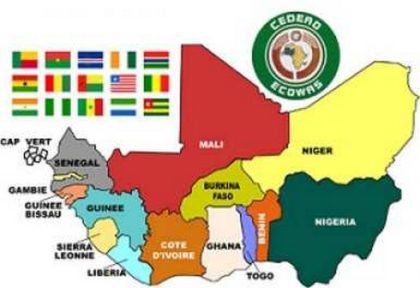The Economic Community of West African States (ECOWAS) aims to reinvent itself in the light of the multiple challenges it faces.
In Niamey, Niger’s capital, ECOWAS was to seek this Monday, September 7, to find a second wind to ensure regional security, consolidate democratic institutions and complete economic integration.
The 57th Ordinary Summit of Heads of State and Government, the first face-to-face meeting since the COVID-19 pandemic, dealt with these issues essential to the development of this community space.
The transition from an ECOWAS of States to an ECOWAS of peoples, so much theorised, is not yet effective. However, in December 2019, at the Abuja Summit, the Member States committed to speeding up the integration process guaranteeing the free movement of people and goods. On the economic front, the launch of a common currency in the course of 2020 was eagerly awaited.
So far, no significant progress has been made on this project. Worse, the adoption of the Eco by the Economic and Monetary Union of West African States (UEMOA) is not conducive to its advent. For the English-speaking countries of the West African region, mainly Nigeria, this new currency does not meet the characteristics defined upstream.
In his inaugural speech delivered at the Mahatma Gandhi International Conference Centre in Niamey, the president of Niger and ECOWAS current Chairman Mouhamadou Issoufou stressed that at the end of this ordinary summit, ECOWAS must “develop a new roadmap while maintaining a gradual approach to the launch of the common currency.”
In addition, the issue of security is of paramount importance for ECOWAS, which, according to Issoufou, is confronted with “threats from terrorist and criminal organisations.”
In 2019, the regional organisation had drawn up an “action plan” estimated at 2.3 billion dollars to “eradicate terrorism in the region” over the period 2020-2024. However, funding for military action is not up to expectations.
“Difficulties in mobilising funding are hampering the implementation of this plan. Apart from the contribution paid by UEMOA member countries, the other pledges are slow to materialise,” the Nigerien president pointed out.
He thus launched “an appeal for solidarity from all member countries” because “the threat is spreading and the risks are great that it will metastasise throughout our region.”
On the political level, ECOWAS is deploying itself to anchor democracy in the community space. But in Mali, it was unable to prevent the overthrow of President Ibrahim Boubacar Keita (IBK) by a military junta now grouped within the National Committee for the Salvation of the People (CNSP).
The management of the political transition is of concern to West African presidents who are counting on a civilian to ensure a return to constitutional order. In Niamey, ECOWAS member countries set an ultimatum for the appointment, by September 15 at the latest, of two civilians as President and Prime Minister of the transition. The regional organisation took note of the national dialogue initiated by the CNSP without lifting the sanctions previously taken against Mali.
ECOWAS is also threatened by the spectre of a third term of office being sought by Alassane Ouattara of Cote d’Ivoire and Guinea’s Alpha Condé. Post-election crises are feared in these countries where the tone is rising.
Issoufou, who has decided not to amend the Nigerien Constitution to run for the 2021 presidential election, has asked his peers to “ensure that our community retains its leadership in consolidating democratic institutions.”
Niger’s leader handed over the baton to his Ghanaian counterpart Nana Akufo-Addo who will preside over ECOWAS for a year.
ODL/id/cgd/lb/abj/APA


